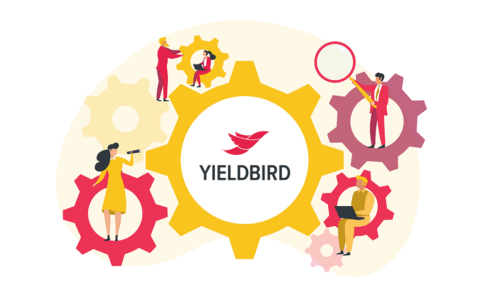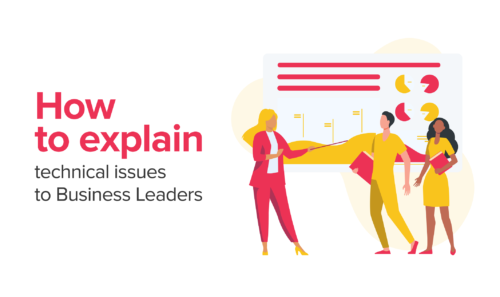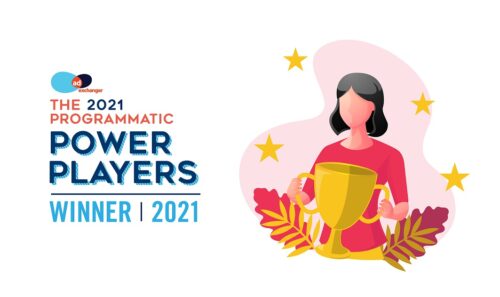How Are Online Publishers Coping with the Coronavirus Pandemic?
The world is currently coming to terms with a very difficult reality while preparing for an unpredictable future. I refer to it as the ‘scenario days’. The coronavirus has rapidly spread over the globe, causing chaos not only within the foundations of health and medical institutions, but also across every other sector of our economy, including digital advertising, an area that is most relevant to Yieldbird. While following news and social media, we are bombarded with graphs, numbers, data and predictions about who is at risk, how society will move forward, and what is next on the agenda following the peak of coronavirus infections. Most likely, many of you reading this have already established your own personal ‘scenarios’ in terms of your own professional career and everyday life during and after the pandemic. Therefore, while the situation remains a pressing topic, in this article I will present the perspectives of online publishers coping with the coronavirus.
Considering that the internet is swarming with Covid-19 revelations that are not necessarily always verified or accurate, I have decided to focus in this article on what We in Yieldbird know for certain. That being said, I will foreground the current standing and plans of some online publishers working with Yieldbird by citing their direct answers to my question: How is the coronavirus affecting your day-to-day business affairs and strategic plans for 2020? The experiences featured in this article are extremely valuable to Yieldbird since the wellbeing of our publishers mirrors the wellbeing of our company. I also believe that this unique perspective will serve as relevant insights for all interested readers.
The Dynamic Shift of Operations

Before we dive into the main section, allow me to briefly comment on the dynamic shift of operations that Yieldbird managed to set in place once we’d realised that remote work was going to be our new reality for the upcoming weeks. Yieldbird is no longer considered a startup since we have more than 90 employees and can baost over 10 years of experience in the digital advertising industry. Nevertheless the startup spirit has unquestionably remained. Our work environment is very transparent; we try to avoid unnecessary bureaucracy’ and we manage to run the organisation efficiently while maintaining an easy-going work culture. This has prepared us for what a lot of companies were not prepared for, and that is: working from home.
The shift to working from home occurred only a few hours after receiving an official decision from the HR department. The initial reaction was alarm, but we quickly realized that before the coronavirus pandemic, our external and internal remote processes were running smoothly. Externally we have never had trouble in communicating with our publishers via skype, google hangouts, zoom, Microsoft teams or slack, while internally we have always worked with automated tools that allow us to get things done. We are very lucky to have been able to maintain our operations with everyone staying safe at home; and we don’t take any of this for granted as complacency is a luxury that few can afford. We are not worried about future performance under current circumstances; since firstly a big chunk of our team already works elsewhere in Poland, and secondly we are already working with publishers who are scattered all over the world.
Now let’s look at what you all have come here to see.
How Has the Coronavirus Affected Your Day-to-Day Business Dealings and Strategic Plans for 2020?
RMF FM, Adam Pachla – Head of Digital (News & Radio)
What we first felt was a significant drop in local direct campaigns, which is a natural consequence of quarantine. This is associated with a larger share of revenues in the programming segment, as direct campaigns have “freed up” a lot of caloric space. Due to the fact that we are a news media, we are in a slightly privileged position in the current situation, as we are seeing significant increases in reach, which also translates into our online revenues. And this above-average growth, filled with programmatic campaigns, to some extent has compensated for the losses caused by declines in direct campaigns. We have also noted that sectors such as e-commerce, vod providers and telecoms have increased their participation in programming campaigns. At the same time, we have observed an increase in fake ads aimed at Premium SMS services impersonating VOD services, Free MP3 and quick dates – which as the most trusted source of information we are having to contend with.
The imposed restrictions related to quarantine have also increased listership for our online radio – rmfon.pl. We have noted a clear increase in listenership figures, as well as the average time spent on the site. We forecast that this trend will continue, and unless advertisers freeze spending, the audio advertising segment looks set to grow dynamically.
Infor Biznes, Wioleta Łata – Traffic Manager (News)
The implementation of remote work was not a challenge for us, because many companies, including ours, have already realized that working from home can be as effective as working from the office. Unlike many industries, we are lucky that a computer linked to the Internet is the basis of our work, so we can do this from anywhere. The tools we use everyday have been readied for remote service; we have replaced physical meetings in the conference room for video conferencing; and we are in constant contact with clients via telephone or email, thanks to which we are maintaining work continuity.
Polska Press, Krzysztof Lechowicz – Head of Programmatic (News)
The year 2020 was always going to be an unknown quantity after the changes introduced by our big brother Google last September. The development strategy in media PPG assumes, above all, an even greater focus on the quality of the inventory offered, and maintaining high eCPM rates. In cooperation with the website development department and our editorial staff, in the early weeks of 2020, we translated these assumptions into positive revenue dynamics. Of course, the outbreak of the global pandemic is not something that the advertising industry was prepared for. The situation has made necessary a greater flexibility of work practices in imperfect home-quarantine conditions.
Within a few days of the lockdown, direct sales departments had to reconfigure their sales strategy, implement new projects, and develop an offer tailored to the current situation. An important focus has been to help our local business partners. e.g. restaurants in our media channels can inform for free that they are open for business and delivering food. And if our customers so wish, they can also take advantage of a specially prepared advertising offer, dedicated to companies offering home delivery.
The programmatic sales strategy has also been adapted to the new conditions. We have seen significant increases in page views, which has translated into more inventory being available. There was a review and a slight reduction in prices on selected parts of inventory, we opened ourselves to smaller budgets with lower calories, which until had been blocked, as we’d been expecting to retain advertising expenditure. However, we are not panicking. We are mindful that each crisis has its end, and that the situation will return to normal in a few weeks.

Grupa Radiowa Agory, Jarosław Śliżewski – Chief Digital Officer (News & Radio)
Our business is based on two pillars: subscriptions and advertising. Of course, many campaigns have been discontinued. Many dealers have suspended activity. It is not true to say, however, that we are coming up against a wall in our conversations with our clients. Instead, there is the general sense that we all must wait and hope for a return to some sort of normality.
RealMadryt.pl, Michał Frasiński – Sales Director (Sport)
The pandemic has really impacted on our business. The sports publishers industry generates traffic by reporting current events in a given category. The Real Madrid team has minimized their activities. So, on our side, the number of news items has dropped, which has resulted in a decrease in traffic and a decrease of approx. 30% in revenues year on year. We want to use this time to work on the product, and also to engage our users through other formats, and not just the standard written formats. For example we will be looking to monetize our Podcasts, which is a natural move.
Android.com, Jakub Bereziewicz – Managing Partner (Tech)
We are conducting our business in a normal fashion. Indeed, we are used to working remotely as we are an internet company. We are continuing to recruit. This is a great opportunity for us to bring talent on board. We are increasing investments. Within two weeks we will be launching several new services:
– With applications
– Our e-commerce
– A new forum for professionals, ideal for targeting programmers and other IT professions
Omnicalculator, Mateusz Mucha – Founder & CEO (Tech)
Initially, we took a rather severe hit as schools and many small businesses closed. The traffic was down by as much as 30%, compared to analogous weekdays a few weeks earlier. We hoped much of it was temporary and that we’d recover once people got the hang of remote learning and work. The whole team really mobilized (and remote work didn’t hurt a bit); we produced a bunch of calculators related to the coronavirus and generated high-profile traffic in the process. Just yesterday, we got 70k visitors to our Stimulus Check Calculator, mainly from CBS News. We have also accelerated preparations on a project aimed at helping teachers to carry out their work (with calculators, of course). It turned out we were right about the traffic – it has mostly recovered as people are settling down in front of their computers.
Viva Media, Łukasz Tomczyk – Director of IT (News)
I won’t lie, we’re very busy. But there’s also a lot of fear in the air about how the situation will develop. However, first and foremost we have to carry out our work. We are operating via the Internet, so we have to move towards typically Internet services, such as server infrastructure expansion; and that’s where our focus is. We have recently noted a significant increase in page views on all web portals. This is due to the fact that people are looking for information on local portals about what is happening in their locality.
To sum up, it will be a financially difficult period because our sales representatives are already reporting problems with direct sales; which is obviously due to their inability to meet directly with the customers. But we are trying to see the positives in this whole situation.
Telewizja Polska, Emilia Orzepowska – Senior Programmatic Specialist (News & Television)
During the pandemic, we adjusted our video offer. We have created four new sections on TVP VOD: children’s “To się nie nudzi”, [“We Won’t Let Ourselves Be Bored”], cultural “Kulturalny rock szkolny”, [“Cultural Rock School”], historical “Lekcja historii” [“Lessons in History”], and school “Lektury na ekranie” [“Reading classics on the Screen”]. Of course in a free, no-charge model.
From Monday, we have launched lessons for elementary school, “Szkoła z TVP” [“School with TVP”], i.e. classes for children at home. All lessons are available for free on the TVP VOD platform.
In connection with the pandemic, most of the employees of the Polish Television Advertising Office are carrying out their duties remotely. Recent days and weeks have shown us that we are prepared in technical and substantive terms to conduct commercial dialogue with the market in what is a new reality, and we are responding to the current needs of our customers on an ongoing basis.
How are Online Publishers Coping with the Coronavirus Pandemic?
Although benchmarks are informative, in such an unfamiliar situation so as to better understand if other companies are facing similar issues; and how they are endeavouring to cope, the truth is that the most valuable insights at the moment can be derived from real action items and improvement ideas that can help minimize losses and retain revenue levels. Below we present a number of solutions which may help you to mitigate the impact of the pandemic.
1. Quality over quantity
In the unusual situation of a rapidly growing number of PV’s on all markets impacted by the pandemic, growing traffic just in terms of scale will not necessarily be the best option to prevent revenue from dropping. Very often, additional requests have a very low viewability and CTR rate, which decrease the campaign performance for advertisers running media on your website. What we hear from the market is that the smallest drops have knock-on effects; and the best situation can be observed with publishers who have Visibility Levels above 70% and CTR on most of the Ad Units above 0,5%. Those are the sites that advertisers want to focus on in this difficult period so as to not blow their budgets. To achieve this kind of metric, you need to analyze your ad grid from the UX perspective and leverage any kind of 1st and 3rd party data you have at your disposal, as the retargeting campaigns will drive your ad unit ctrs higher.

Source: Browsi
2. Additional demand
With over 70% of advertisers downsizing their budgets already, and average traffic levels growing by double digits, auction pressure is dropping rapidly and with it CPMs and Revenue. This cannot be easily reverted if you have just a couple of demand sources on your site. As Hippocrates once said ‘desperate times call for desperate measures’, so even if you have always looked to keep a simple setup and limit the number of vendors, you should consider increasing your demand stack at least for a couple of months so as to protect your performance and fill-rate level. If you don’t have open accounts with many SSP’s, you won’t need to do so, which will avoid wasting time and resources negotiating contracts. You can always use the accounts of a monetization partner, pay a small revenue share, and remove the demand when the situation gets back on track; or take your time opening your accounts without undue pressure. Having said that, in our opinion Ad Manager, Open Bidding with 3-4 main SSP’s and Header Bidding with 6-9 main SSP’s are necessary stacks for providing the required performance in this tough period.
3. Content that pays
Brand safety algorithms and keyword blocking has been skyrocketing in the last couple of weeks, ensuring that premium brands will not be negatively associated with the pandemic. Because of this, the increase in PV’s on news websites in most of the cases cannot compensate for the loss in performance due to disqualification of the big content portion by content filters. To avoid this kind of situation, try being smart when it comes to using specific wording in your articles such as COVID or Coronavirus, and exchange them with something understandable and acceptable in terms of Brand Safety filters. Also, while producing your content, make sure to focus on a lighter content connoted with the ideas for surviving home office, rather than just covering the statistics of deaths and layoffs. Adjust your content also to the needs of industries that are spending more than before (Pharmacy, e-commerce, VOD), because those are the budgets you should be fighting for, and they will most likely want to be displayed in the kind of friendly context matching their category and brand message.








